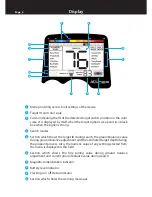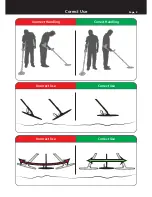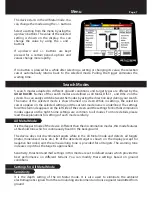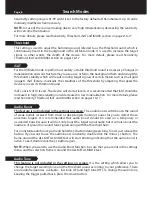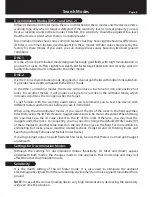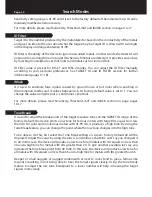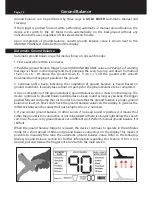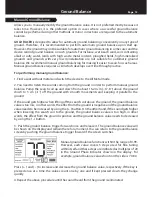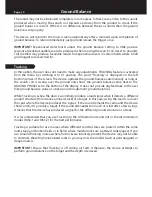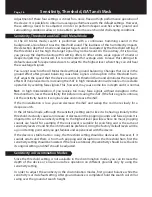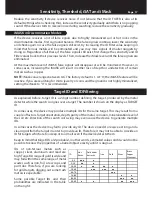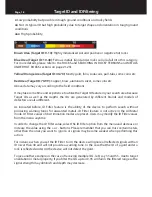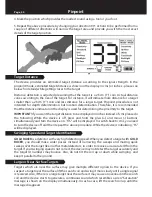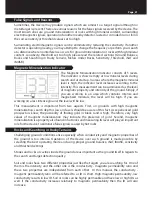
Brown Area (Target ID: 0-10):
Highly mineralized soil and positive or negative hot rocks.
Blue Area (Target ID: 10-40):
Ferrous metals (Gold under rocks can also fall into this category.
For more details, please refer to the ROCKS and SEARCHING IN ROCKY TERRAINS and METALS
UNDER HOT ROCKS sections on page 21-23).
Yellow/Orange Area (Target ID:40-70):
Mostly gold, folio, soda cans, pull-tabs, some coins etc.
Red Area (Target ID:70-99):
Copper, brass, aluminum, silver, some coins etc.
Above data may vary according to the field conditions.
It may take some time and experience to utilize the Target ID feature in your search area because
Target IDs as well as the depths the IDs are generated by different brands and models of
detectors are also different.
As indicated before, ID Filter feature is the ability of the device to perform search without
producing warning tones for unwanted metals. ID Filter feature is not active in the All Metal
mode. ID Filter values of discrimination modes are preset. Users may modify the ID Filter values
from the menu anytime.
In order to change the ID Filter value, select the ID Filter option from the menu and decrease or
increase the value using the + or - buttons. Please remember that you can miss certain metals,
other than the ones you want to ignore, or signals may become weaker when performing this
action.
For instance, when you set the ID Filter to 40, the device will ignore all reflected signals with an
ID lower than 40 and will not provide a warning tone. In the case that the ID of a gold under a
rock is reflected under 40, the device will not detect the gold.
To give another example, in the case of receiving multiple IDs - let's say 35 and 55 - due to target
orientation or metal property, if you filter the IDs up to 40, 35 will fall in the filtered range so the
signal strength may diminish and depth may decrease.
Page_18
Target ID and ID Filtering
●
Low probability but possible in tough ground conditions and rocky fields.
●●
Not its typical ID but high probability due to target shape and orientation in tough ground
conditions.
●●●
High probability.

